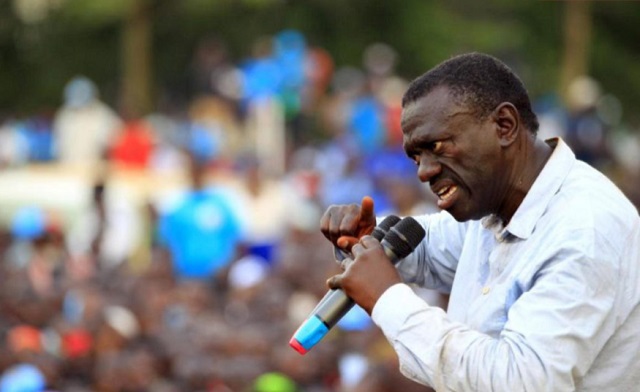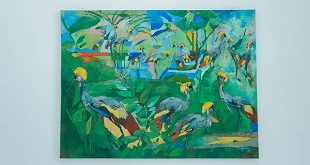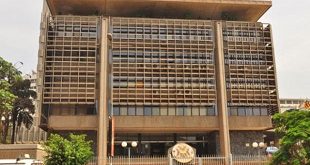
For a party to receive money, however, it must undergo and pass certain critical eligibility tests. Is it registered by the Electoral Commission? Are its financial systems in order? What about its other structures? How much money does it raise from membership? The donors do citizen surveys, analyse proportions of votes won by parties and independents, and test internal democracy which is based on whether or not a party has held a national delegates conferences, for example. The role of women, party branches at district level.
Previously, three opposition parties have got donor money; FDC, the UPC and the Peoples Progressive Party (PPP). These are the ones that got the so-called “direct funding”.
But even others in the mix got something under the “indirect funding”. The DP, Justice Forum (JEEMA), NRM and SDP were in this group. This group is not given cash but they are given material assistance, equipment, and training. The best place to be is in the “direct funding” group. Mao’s cleaning house in DP appears to be an effort to present a decent face to donors.
But the donors also love to fund alliances. This is mainly for two reasons; first, donors are motivated by the success of opposition coalitions elsewhere to remove incumbents. In 2000, opposition parties in Senegal formed Sopi (or “Change”) alliance, defeated an incumbent and ended 40 years of one-party dominance. In 2002, Kenya’s opposition grouped under the National Rainbow Coalition (NARC) and kicked out KANU which had governed Kenya since 1963. But this came after they individually first garnered over 60% of the vote in 1992 and 1997 elections. Pre-electoral opposition coalitions have changed governments in Liberia, Madagascar, Malawi, Mali, Mauritius, Nigeria, and The Gambia. So donors are convinced that since Ugandan parties are small and weak, they only stand a chance if they are united under one platform.
The second reason is organisational; the donors find it is easier to monitor finance to one entity rather than chase ten tiny groups. So political parties like to present themselves, in name if not in reality, as blocs, forums, alliances and so on. Their names reflect that. There is Mao’s DP Bloc, Besigye’s Forum for Democratic Change, and Mugisha Muntu’s Alliance for National Transformation (ANT).
The donors, of course, also have agendas they push through the grant receiving organisations and it is easier to push the agenda through one body. In 2011, the donors funded the Inter Party Cooperation (IPC). Its mission, pushed vigorously by Otunnu with America’s backing, was to ensure parties boycott the election – to embarrass Museveni. When that failed, Otunnu quit the IPC coalition and failed to even vote for himself.
In 2016, it was The Democratic Alliance (TDA) and former Prime Minister Amama Mbabazi was its anointed candidate to challenge Museveni. When Kizza Besigye refused to fall into line and it became obvious that the opposition could not front one joint candidate, TDA collapsed. Amama Mbabazi went on to score a paltry 136, 519 votes against Besigye’s 3,508, 687 votes.
The DP Bloc must, therefore, be seen as ground one for the eventuality of a donor-backed alliance joint candidate negotiation. In that setting, small players always insist on being treated as equals and the biggies like FDC play along –hoping to win their vote. So the DP Bloc of minnows Mao, Mabikke, Bwanika and Lubega might end up more powerful than FDC.
Besigye, Bobi Wine stuck
In an interview with The Independent, however, Bwanika insisted that their intent is on the democratic gains that can be made from the alliance.
“Our objective is to win together, build electoral power and bring all our individual processes together,” he says.
“Secondly is to govern together where we position ourselves and distribute candidates from the presidency, to MPs and councilors,” he adds. Bwanika states the third goal of the bloc is to have a unified policy platform.
Bwanika explains that the DP Bloc is working on a formal agreement under which People Power of Bobi Wine will be incorporated. When that happens, which appears inevitable given Bobi Wine is schmoozing with donors, it could cause even more challenges for the DP Bloc and possibly make a break-up inevitable.
Part of the reason for such fear is that Bobi Wine has already declared his intention to run for president in 2021. That puts him on a direct collision course with Norbert Mao under the DP Bloc. On paper, Mao is Bobi Wine’s senior in politics. Mao is a former Makerere University students’ guild president who has been in national politics since the 1990s.
Bobi Wine is a ghetto raised kid, who gained prominence through notoriety and music. He only joined politics in 2017. But in any fight for leadership, especially within the DP Bloc, Bobi Wine will easily thrash Mao. As already seen, leadership fights within coalitions are usually resolved based on personal relationships between the players. Bobi Wine is a perfect ethnic fit with Bwanika, Lubega, and Mabikke. They will also easily accept his leadership because Bobi wine currently has the political momentum. The Bwanikas also do not have much to lose as they do not have the same clout as Mao outside the party.
But Bobi Wine’s strength is also his weakest point. He cannot join a coalition unless he is guaranteed of two things; first he must lead the coalition, and secondly, he must be the joint presidential candidate of the coalition. That cannot happen with Mao in the DP Bloc. If Bobi Wine defeats Mao in a vote of the DP Bloc, Mao will reject it and run as a DP candidate. Then Bobi Wine will also have to run as an independent People Power candidate.
The FDC stalwart Kizza Besigye faces the same dilemma as Bobi Wine. He too has since 2001 boxed himself into a corner as the alpha male. He must dominate any coalition that he joins. He cannot join a coalition unless he is the joint presidential candidate of the coalition. And it has little to do with personal choice. His supporters and fellow leaders in the organisation expect that. It happened with the Interparty Coalition (IPC) in 2011 and TDA in 2016.
This time Mao, Bobi Wine, Bwanika, Lubega, and Mabikke have all been calling on Besigye not to run for a fifth time. They claim Besigye’s message of “votes cannot remove Museveni” confuses voters. But the real reason is their fear of Besigye dominating them. It is obvious that the best chance for the opposition is if all stand behind Besigye as their single candidate. But they cannot. Besigye has also repeatedly brushed such calls aside, saying no one asked him to join the struggle he is involved in. FDC deputy secretary general, Harold Kaija, says the idea of a coalition clearly does not fit anywhere in their defiance strategy.
“We have been at this for a very long time,” he told The Independent in an interview recently, “Our colleagues expect to go register, vote and wait to be declared. It cannot work.”
Kaija says this attitude by those in the coalition is the reason FDC cannot join them. He poured more scorn on some of the coalition leaders.
“We believe teams should be organising internally. Some of those in the coalition are regime apologists,” he said.
Therefore, Besigye and Bobi Wine appear destined to run as independents in the 2021 elections. And donors do not like that. They see them as spoilers. Mugisha Muntu’s ANT party remains an unknown quantity. That is how Mao’s coalition of minnows presents the most interesting strategy in 2021.
 The Independent Uganda: You get the Truth we Pay the Price
The Independent Uganda: You get the Truth we Pay the Price



